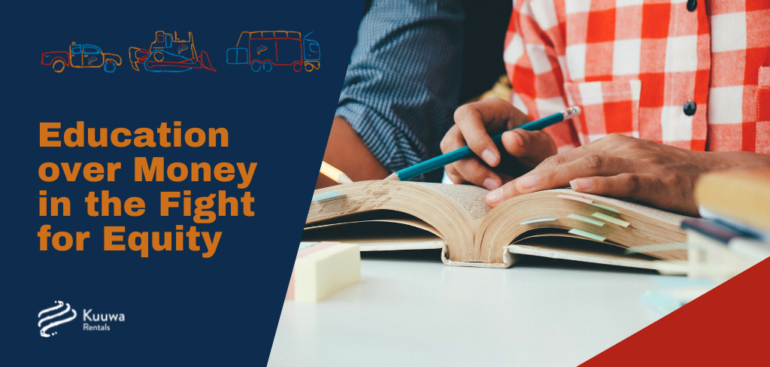Time flows ever forward yet the troubles of the past seem to still find their way into countries that managed to leave behind colonial status but not colonial issues regarding equality for native peoples.
There are many reasons for such reasons to remain, we cannot expect generations of segregation and oppression to disappear just because a country is suddenly “free”, and yet there is also a matter of mentality to be addressed.
That would be the mentality of seeing inequality as a merely economic issue, ignoring its social and cultural aspects. The fact that this allows for bombastic headlines announcing millionaire numbers in economic stimulants is certainly also a factor.
Not just of money is equality made, but of measurable and concrete outcomes, which should be at the forefront of any serious policy or project that claims to be for the equality of native peoples.
In this article, we shall see how fomenting access to education is key in reaching such outcomes.
Reduced Income Inequality
One of the major issues with governmental handouts in the forms of stimulus packages is that it is an awfully short-term solution, as the money often spent outside of native communities and has no further impact on reducing inequality.
Access to higher education, on the other hand, allows for individuals from indigenous communities to apply for higher paying jobs that will provide a safer source of income for them and their families, as we will see later on.
The presence of quality public education also bridges this gap as it allows for children from poorer families to pursue higher education even if their parents do not have the same resources.
Academic literature that supports such claims is not hard to find, either as the effects of solid public education at a base level and access to higher education can be seen on several countries.
A great example of outcome focused policies in this sector is the Native American scholarship program in the US which offer several student funding programs for indigenous students.
Increased Political Representation
Another relevant aspect of access to higher education is that it directly affects an individual’s engagement in political matters, as was revealed by yet another study, which means that increasing it for indigenous peoples directly impacts their ability to represent themselves.
Greater political engagement means that people of indigenous background will not only have greater voter turnout rates, thus increasing the chance for representatives aligned with their interests to be elected, but that they have a greater chance of pursuing political careers.
These politicians of indigenous background are also in a prime to bring issues specific to their group into the forefront of political debate, giving issues specific to native groups their due attention.
There is also the fact that when a greater number of people from an indigenous background engage in civil discourse on the public sphere, awareness about issues that directly affect them also increases.
All of this corroborates for a political landscape that is much more friendly towards the interests of native peoples, from which policies that have concrete, measurable impact beyond mere handouts may incur.
Cultural Representation
Giving members of an indigenous population the opportunity to pursue an academic career also gives them a path into the very forefront of cultural development, allowing indigenous points of view to become a part of the collective imaginary.
This is of extreme importance to the elimination of social barriers for indigenous peoples, as books, movies and songs that represent their point of view can dispel prejudice and foment empathy in a way that no policy can.
A great example of this is the Maori writer, Alan Duff who through uses his novels as a way to reveal to readers the struggles of native Maori to expose the situation of inequality in New Zealand and the violence that ensues from it.
This greater representation will not only help in fighting harmful stereotypes about different indigenous groups, but increase wider societal support for them by raising awareness about their issues and needs.
Strong Leadership
Greater access to education also allows for indigenous leadership capable of coordinating action to arise and drive efforts for greater equality on a more localized scale from within organisations.
A great example of this is the creation of a Maori network within Fletcher building, through which workers from an indigenous background were able to support each other and even coordinate for greater linguistic inclusion in the work space.
The formation of this leadership is also essential for bypassing implicit bias or just outright prejudice within companies and organizations, making it an essential tool in the building of fairer and more equal societies.
All of a sudden, it becomes a lot more difficult to be prejudiced against indigenous peoples when they will not only talk to each other about it, but effectively coordinate to counteract said prejudice.
Conclusion
One of the main reasons as to why inequality is reduced to a merely economic problem is that it becomes much easier to address, as well as much more profitable from a public relations point of view.
After all, any public figure can announce an act of charity with big numbers for the headlines, pose for some complementing pictures and then stand for ovation while having contributed very little to what actually matters.
The fight for equality is not just a matter of money, but rather of improving lives on a generational level and removing the barriers that keep vulnerable groups like indigenous peoples from progressing.
Hopefully this article has opened your eyes to that.

